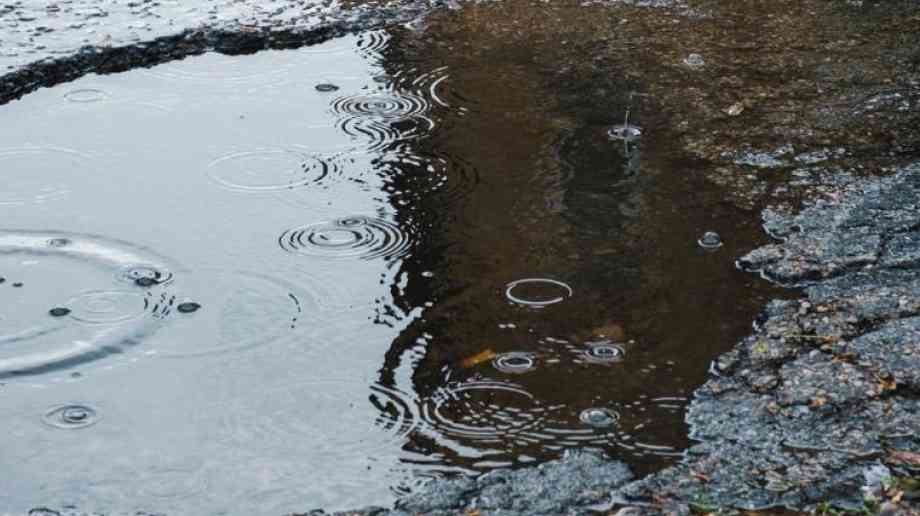Sue Robb of 4Children talks to Julie Laughton and Alison Britton from the Department for Education about the role of childminders in delivering the 30 hours free entitlement.
Drop in traffic fails to prevent pothole issues

Despite the country being in various stages of lockdown for the last few months, RAC patrols still had to go to the rescue of 1,766 drivers whose vehicles had fallen foul of potholes.
The motoring organisations said that, while overall motor traffic volumes were down by as much 60 per cent in the second quarter of 2020 according to government data, pothole-related call-outs during this period still made up 1.1 per cent of all breakdowns attended by the RAC/
This is the same proportion as were attended in the second quarter of 2019, suggesting that road surface quality has not significantly improved.
The RAC’s Pothole Index suggests the overall standard of the roads improved very slightly in Q2 2020 with the Index reducing from 1.65 to 1.59, down from 2.04 in the same period last year – the lowest since Q1 2008, the point at which the state of the UK’s roads began to grow steadily worse. This means drivers are now 1.5 times more likely to suffer a pothole breakdown than in 2006, when the RAC first started collecting data.
Nicholas Lyes, RAC head of roads policy, said: “On the surface, these statistics appear encouraging because they make it seem as though the quality of our roads hasn’t worsened, but when you consider how few vehicles were on the road, they are a real cause for concern. We would have hoped to have seen a far bigger drop in the share of pothole-related breakdowns than we would do normally at this time of year, but instead it was just the same as usual.
“Looking at our breakdown data in regard to pothole damage the long-term trend is clearly down which is good news for everyone who uses the roads. But we were very surprised by how many of these call-outs we dealt with during lockdown considering the vast majority of our work in this period was helping motorists with flat batteries at home as a result of vehicles being used so little.
“Those who did need our assistance away from home between April and June must have been very annoyed that their vehicle had been unlucky enough to have fallen victim to a pothole, particularly as many local authorities took advantage of the quieter roads during lockdown to repair poor road surfaces. With council budgets under significant pressure, it is important that our local roads are not left behind as the UK’s economic recovery will depend on high quality infrastructure. This is why we want to see councils given the same certainty of funding for road maintenance and improvement as major roads in England and Wales have through the National Roads Fund which ring-fences money from car tax – vehicle excise duty – for that purpose.”
David Renard, the Local Government Association’s transport spokesman, said: “Fixing our roads is a top priority for councils. Despite the pandemic, councils have been working hard to fix potholes and repair road surfaces as well as supporting the increase in cycling infrastructure through temporary road measures.
“Extra government funding has helped but our local roads are deteriorating at a faster rate than can be repaired by councils. It would cost more than £11 billion to clear our current roads repair backlog. With devolved infrastructure and transport budgets and long-term funding, councils can improve our roads and deliver the infrastructure improvements that allow people to move around in less carbon intensive and more sustainable ways.”
Company Focus
Just Lanyards is a subsidiary name of Gifts 2 Impress Limited, who have been trading for over 25 years, we therefore pride ourselves in having endless experience covering all aspects of the promotional merchandise industry.
Event Diary
UKREiiF has quickly become a must-attend in the industry calendar for Government departments and local authorities.
The multi-award-winning UK Construction Week (UKCW), is the UK’s biggest trade event for the built environment that connects the whole supply chain to be the catalyst for growth and positive change in the industry.
Supplier Profiles
Geo Energy
At GeoEnergy Design, we're on a mission to disrupt the traditional way heating and cooling ha
Latest Features
Professor Harith Alani, director of the Knowledge Management Institute at the Open University explains how AI can be used for good and bad.
Alex Lawrence, head of health & social care, techUK sets out techUK’s Five Point Plan for CareTech.

















